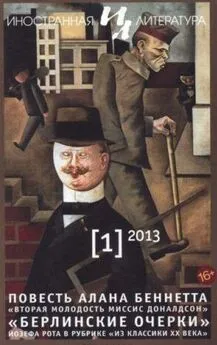Toni Morrison - Song of Solomon
- Название:Song of Solomon
- Автор:
- Жанр:
- Издательство:неизвестно
- Год:неизвестен
- ISBN:нет данных
- Рейтинг:
- Избранное:Добавить в избранное
-
Отзывы:
-
Ваша оценка:
Toni Morrison - Song of Solomon краткое содержание
Song of Solomon - читать онлайн бесплатно полную версию (весь текст целиком)
Интервал:
Закладка:
For two weeks afterward the man was not on the bus. When he did appear, it was hard for Corinthians not to speak or acknowledge his presence. As they neared the place where he usually got off, he leaned over to her and said, “I truly hope you didn’t mind.” She looked up, gave him a small smile, and shook her head. He said nothing more.
But on subsequent days they did exchange greetings and finally they began to talk. In a while they were chatting (carefully, guardedly) and she, at least, was looking forward to his being there. By the time she knew that his name was Henry Porter and that he had occasional yard work in that part of town, she was glad she had never shown or mentioned either the card or the man to anyone.
Pleasant as their conversations were, they were also curious. Each took care not to ask the other certain questions—for fear he or she would have to volunteer the same information. What part of town do you live in? Do you know Mr. So-and-so?
Eventually Mr. Porter offered to pick Corinthians up after work. He didn’t own a car, he said, but borrowed a friend’s sometimes. Corinthians agreed, and the result was a pair of middle-aged lovers who behaved like teen-agers—afraid to be caught by their parents in a love relationship they were too young for. He took her for rides in an old gray Oldsmobile—to the country, to drive-in movies—and they sat over bad coffee in certain dime stores where they were not likely to be recognized.
Corinthians knew she was ashamed of him, that she would have to add him to the other secret, the nature of her work, that he could never set foot in her house. And she hated him a lot for the shame she felt. Hated him sometimes right in the middle of his obvious adoration of her, his frequent compliments about her looks, her manners, her voice. But those swift feelings of contempt never lasted long enough for her to refuse those drive-in movie sessions where she was the sole object of someone’s hunger and satisfaction.
At some point Corinthians began to suspect that Porter’s discretion was not only in deference to who she was (her position and all), but also because he too didn’t want to be discovered. Her first thought was that he was married. His denials, accompanied by a wistful smile which she interpreted as a sly one, only aggravated her suspicions. Finally, to prove his bachelorhood as well as to indulge himself in a real bed, he invited her to his room. She declined immediately and repeatedly for several days until he accused her of the very thing that was absolutely true: that she was ashamed of him.
“Ashamed of you?” Her eyes and mouth went wide with surprise (genuine surprise, because she never thought he would guess it). “If I were ashamed I wouldn’t see you at all, let alone this way.” Her hand pointed toward the world outside the car they sat in: the row upon row of automobiles in the hot drive-in movie lot.
Porter traced her cheek line with his knuckle. “Well, then? The things you tell me can’t be true and not true at the same time.”
“I’ve never told you anything except what was true. I thought we both knew…understood…the problem.”
“Maybe,” he said. “Let’s hear it, Corrie.” His knuckles stroked her jaw line. “Let’s hear the problem.”
“My father. It’s only my father…the way he is.”
“How is he?”
Corinthians shrugged. “You know as well as I do. He never wanted us to mix with…people. He’s very strict.”
“And that’s the reason you won’t come home with me?”
“I’m sorry. I have to live there. I can’t let him know about us. Not yet.” But when? she thought. If not at forty-four, then when? If not now, when even my pubic hair is turning gray and when my breasts have dropped of their own accord—then when?
Porter spoke her own question aloud. “When, then?” And she could not answer him right away. She put her fingers to her forehead and said, “I don’t know. I honestly don’t know.”
It was such a fake gesture to go along with her fake feelings of moral and filial commitment that she knew right away how foolish she seemed. The things they did in that old car, the things she’d let her tongue say, as recently as five minutes ago…and now to caress her temples and say in Michael-Mary’s reading voice, “I don’t know,” embarrassed her and must have disgusted Porter, for he took his hand from her face and put it on the steering wheel. Right at the beginning of the second feature, he started the car and moved it slowly down the gravel aisle.
Neither spoke until the car entered downtown traffic. It was ten-thirty. She’d told her mother she would be typing manuscript for Miss Graham until very late. “In this heat?” was all her mother said. Corinthians sat quietly, feeling shame but not thinking the word, until she realized that he was driving her to the bus stop where he always let her out to walk home the way she normally would. In a sudden flash she knew he was never going to see her again, and the days rolled out before her like a dingy gray carpet in an unfurnished, unpeopled hall-for-rent.
“Are you taking me home?” She succeeded in keeping the anxiety out of her voice—succeeded too well, for her words sounded arrogant and careless.
He nodded and said, “I don’t want a doll baby. I want a woman. A grown-up woman that’s not scared of her daddy. I guess you don’t want to be a grown-up woman, Corrie.” She stared through the windshield. A grown-up woman? She tried to think of some. Her mother? Lena? The dean of women at Bryn Mawr? Michael-Mary? The ladies who visited her mother and ate cake? Somehow none of them fit. She didn’t know any grown-up women. Every woman she knew was a doll baby. Did he mean like the women who rode on the bus? The other maids, who were not hiding what they were? Or the black women who walked the streets at night?
“You mean like those women on the bus? You can have one of them, you know. Why don’t you drop a greeting card in one of their laps?” His words had hit home; she had been compared–unfavorably, she believed—with the only people she knew for certain she was superior to. “They’d love to have a greeting card dropped in their lap. Just love it. But oh, I forgot. You couldn’t do that, could you, because they wouldn’t be able to read it. They’d have to take it home and wait till Sunday and give it to the preacher to read it to them. Of course when they heard it they might not know what it meant. But it wouldn’t matter—they’d see the flowers and the curlicues all over the words and they’d be happy. It wouldn’t matter a bit that it was the most ridiculous, most clichéd, most commercial piece of tripe the drugstore world has to offer. They wouldn’t know mediocrity if it punched them right in their fat faces. They’d laugh and slap their fat thighs and take you right on into their kitchens. Right up on the breakfast table. But you wouldn’t give them a fifteen-cent greeting card, would you?—no matter how silly and stupid it was—because they’re grown-up women and you don’t have to court them. You can just come right out and say, ‘Hello there, come on to my room tonight.’ Right? Isn’t that so? Isn’t that so?” She was close to screaming. “But no. You wanted a lady. Somebody who knows how to sit down, how to dress, how to eat the food on her plate. Well, there is a difference between a woman and a lady, and I know you know which one I am.”
Porter pulled the car over to the curb, and without shutting off the motor, leaned across her and opened the door. Corinthians got out and did her best to slam it, but the rusty hinges of the borrowed Oldsmobile did not accommodate her. She had to settle for the gesture.
By the time she reached number 12 Not Doctor Street, her trembling had become uncontrollable. Suddenly the shaking stopped and she froze at the steps. Two seconds later she turned on her heel and ran back down the street to where Porter had stopped the car. The moment she had put her foot on the step leading up to the porch, she saw her ripeness mellowing and rotting before a heap of red velvet scraps on a round oak table. The car was still there, its motor purring. Corinthians ran toward it faster than she had ever run in her life, faster than she’d cut across the grass on Honoré Island when she was five and the whole family went there for a holiday. Faster even than the time she flew down the stairs having seen for the first time what the disease had done to her grandfather. She put her hand on the door handle and found it locked. Porter was sitting pretty much the way he was when she’d tried to slam the door. Bending down, she rapped on the window. Porter’s profile did not move. She rapped again, louder, mindless of who might see her under the gray beech tree just around the corner from home. So close and yet so far, she felt as though she were in a dream; there, but not there, within a hair’s breadth but not reaching it.
She was First Corinthians Dead, daughter of a wealthy property owner and the elegant Ruth Foster, granddaughter of the magnificent and worshipped Dr. Foster, who had been the second man in the city to have a two-horse carriage, and a woman who had turned heads on every deck of the Queen Mary and had Frenchmen salivating all over Paris. Corinthians Dead, who had held herself pure all these years (well, almost all, and almost pure), was now banging on the car-door window of a yardman. But she would bang forever to escape the velvet. The red velvet that had flown all over the snow that day when she and Lena and her mother had walked past the hospital on their way to the department store. Her mother was pregnant—a fact that had embarrassed Corinthians when first she learned of it. All she could think of was how her friends would laugh when they found out she had a pregnant mother. Her relief was sweet when she discovered that it was too soon to show. But by February her mother was heavy and needed to get out of the house, to exercise a little. They’d walked slowly through the snow, watching carefully for icy places. Then as they passed Mercy, there was a crowd watching a man on the roof. Corinthians had seen him before her mother did, but when Ruth looked up she was so startled she dropped the basket, scattering the roses everywhere. Corinthians and Lena busied themselves picking them up, wiping the snow from the cloth on their coats, all the while peeping at the man in blue wings on the hospital roof. They were laughing, Lena and she; collecting the roses, looking up at the man, and laughing from fear, embarrassment, and giddiness. It was all mixed together—the red velvet, the screams, and the man crashing down on the pavement. She had seen his body quite clearly, and to her astonishment, there was no blood. The only red in view was in their own hands and in the basket. Her mother’s moans were getting louder and she seemed to be sinking into the ground. A stretcher came at last for the dollbroken body (all the more doll-like because there was no blood), and finally a wheelchair for her mother, who was moving straight into labor.
Corinthians continued to make roses, but she hated that stupid hobby and gave Lena any excuse to avoid it. They spoke to her of death. First the death of the man in the blue wings. Now her own. For if Porter did not turn his head and lean toward the door to open it for her, Corinthians believed she would surely die. She banged her knuckles until they ached to get the attention of the living flesh behind the glass, and would have smashed her fist through the window just to touch him, feel his heat, the only thing that could protect her from a smothering death of dry roses.
He did not move. In a panic, lest he shift gears and drive away, leaving her alone in the street, Corinthians climbed up on the fender and lay full out across the hood of the car. She didn’t look through the windshield at him. She just lay there, stretched across the car, her fingers struggling for a grip on steel. She thought of nothing. Nothing except what her body needed to do to hang on, to never let go. Even if he drove off at one hundred miles an hour, she would hang on. Her eyes were shut tight with the effort of clinging to the hood, and she didn’t hear the door open and shut, nor Porter’s footsteps as he moved around to the front of the car. She screamed at first when he put his hand on her shoulders and began pulling her gently into his arms. He carried her to the passenger’s side of the car, stood her on her feet while he opened the door and helped her ease into the seat. In the car, he pressed her head onto his shoulder and waited for her soft crying to wane before he left the driver’s seat to pick up the purse she had let fall on the sidewalk. He drove away then to number 3 Fifteenth Street, a house owned by Macon Dead, where sixteen tenants lived, and where there was an attic window, from which this same Henry Porter had screamed, wept, waved a shotgun, and urinated over the heads of the women in the yard.
Читать дальшеИнтервал:
Закладка:








